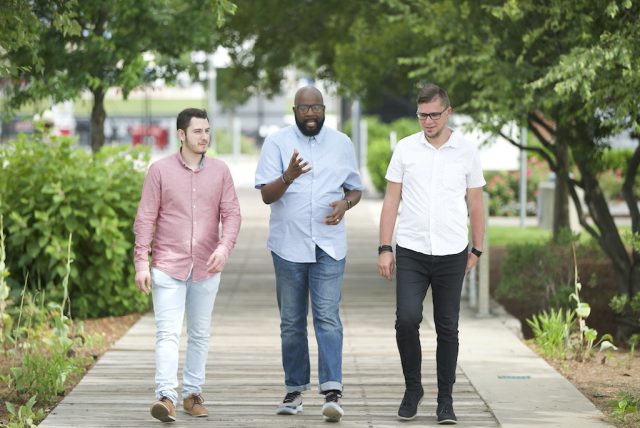Article
Your Church Needs More Than You
Your church needs more than you. Making this a bedrock conviction of your church-planting strategy will enable you to plant a church pleasing to God and edifying for His people.

A friend of mine recently recalled some advice Clint Clifton once gave him. Clint said, “If God has called you to plant, He has called others to plant with you.” Clint was a brilliant church planter and if anyone could pull it off on his own, it would’ve been him. But he wisely understood that even he was not all that was needed for a healthy church.
Every church planter then needs to hear those words and understand, as Clint did, that behind those words he spoke is an implicit and indispensable truth: Your church needs more than you.
Discerning a call from God to be a church planter should involve other Christians affirming that call through what they have witnessed in our lives. People often observe aspects such as our devotion to Jesus, our commitment to serving the church, our spiritual gifts and even our personality or charisma. While this external affirmation is certainly needed, we have to guard against believing the false notion that any of us are an all-in-one church planter extraordinaire.
Here are three needs of your church you cannot meet on your own.
1. The Holy Spirit
I know, this seems so obvious it doesn’t need to be said – but that is exactly why it needs to be said. Church planters can get so focused on all the stuff that needs to get done and all the means to gathering people, that they can lose sight of the purpose behind the stuff and the gathering. The church you are planting is, first and foremost, to be a body of people who are renewed, filled and led by the Holy Spirit.
You are a gifted communicator. People throng to your personality. You give wise counsel. But if you are leading your people to rely on any of these more than – or rather than – the Holy Spirit, you are failing in your calling. The truth is, you can’t lead people to depend on God, if you yourself aren’t depending on Him. And if you aren’t depending on Him, you aren’t planting His Church.
No matter the size of the following you develop, without the Holy Spirit your efforts are vain. Your charm is not life-giving; God is. Your leadership is not all-wise; God’s is. Your ability is not beyond measure; God’s is. It is a dangerous thing to have a church rely more on you than God. So set the example, plant in God’s strength and use your giftings to teach your church to do the same.
2. The church
Pastors sometimes feel that for this church to succeed, we have to do all the work, all the serving, all the ministry. While this is often out of a sense of responsibility and concern for the church, it can come from, or lead to, an unhealthy sense of importance or ability, aka Arrogance. Yes, even noble intentions can lead to this terrible attribute. Which is why God, in His wisdom, has spread the gifts of His Spirit throughout the members of His flock.
Consider Paul’s analogy of the church as a body. After he explains how God has given spiritual gifts to Christians within the body, he writes, “But God has so composed the body … that there may be no division in the body, but that the members may have the same care for one another” (1 Cor. 12:24b-25a). God has arranged your church in a way that it requires more than what you alone have been gifted to provide. Your church needs the teaching, the leadership, the ministry, and the love of others within the body besides yourself. You are serving God and your church far better then, when you encourage, equip and allow others to serve the church as God has gifted them. Guard against burnout and arrogance by doing what you’ve been called to do, which is leading your church to do what they’ve been gifted to do.
3. The Church
No, this is not a repeat of #2. Your church needs the gifts within the little “c” church you are planting, but also needs the fellowship and partnership of the big “C” worldwide Church of Jesus. God has not called any of us to plant a church that exists in isolation from the other churches God has planted.
Churches plant churches, so at the very least, you need a sending church. If you have been called to plant a church, then your church has been called to send you. (If you are not part of a church or they are not willing to send you, this may be cause for serious reflection as to the validity of your call.) Even after you have planted, your church needs to be connected to the mission of God that is being carried out in other locations in your city, state and around the world. Self-imposed isolation from the larger Christian community is not healthy and can communicate the belief that God has called your church to carry out the Great Commission on its own. Your church needs to know they are part of something larger than one planter’s efforts to lead a local congregation. They need to be equipped to participate in God’s mission around the globe.
Conclusion
We have to guard against the pride and arrogance of thinking we are all that is needed to plant the perfect church and we are all that is needed to keep that church perfect. Your church needs more than you. Making this a bedrock conviction of your church-planting strategy will enable you to plant a church pleasing to God and edifying for His people.
The good news is, God knows your church needs more than you and, as Clint said, “If God has called you to plant, He has called others to plant with you.”




